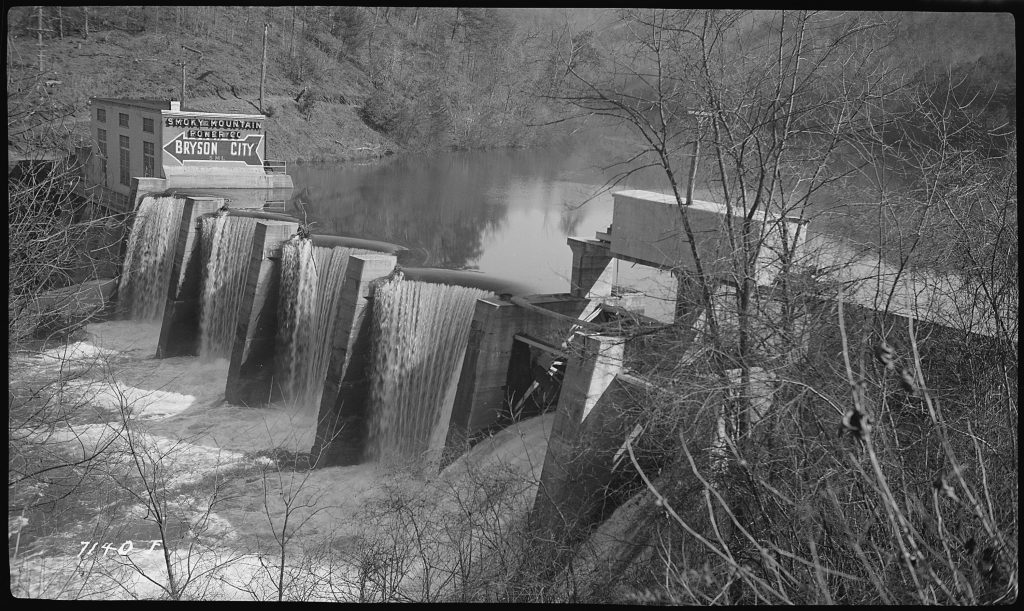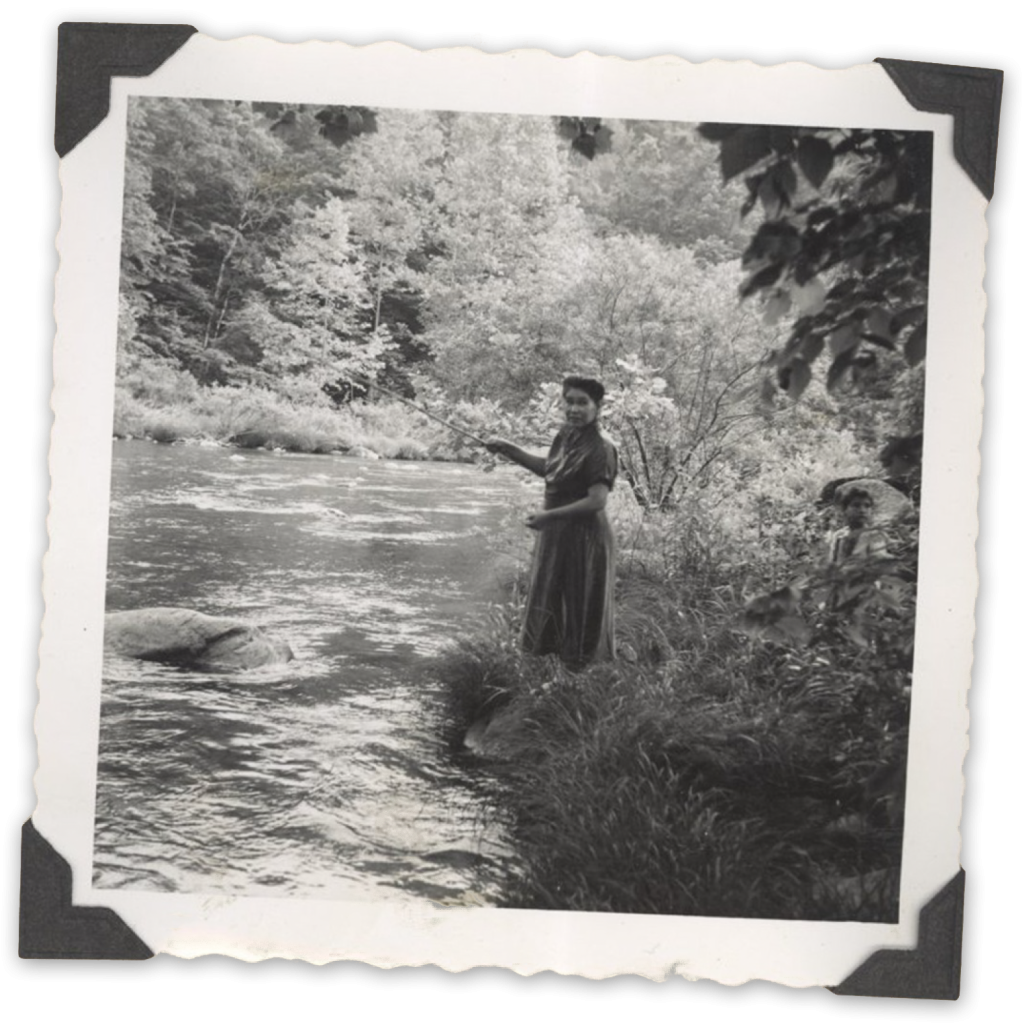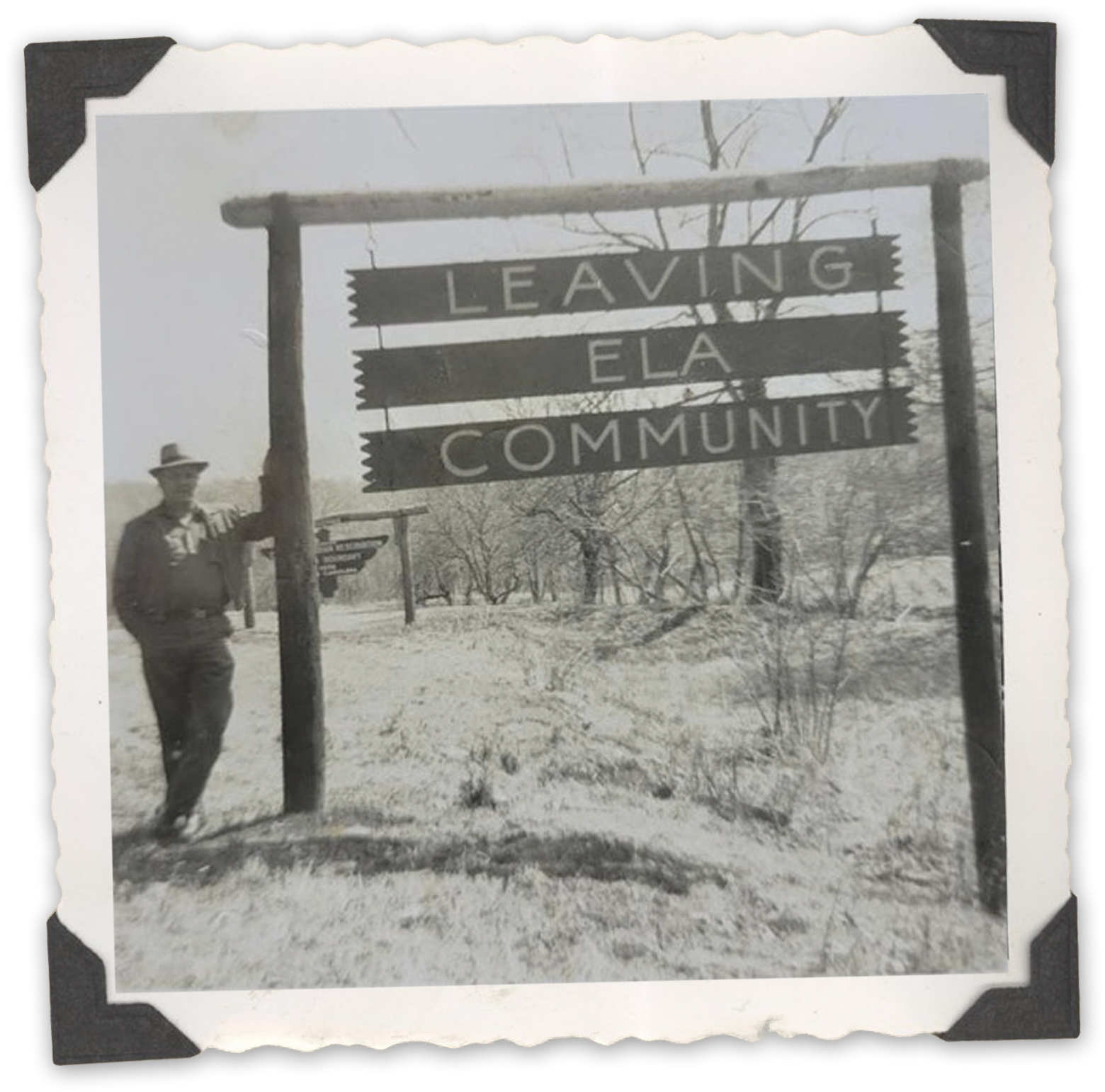
For centuries, the Oconaluftee River has carried more than water through the valleys of Swain County. It has carried stories — stories of Cherokee towns, families who fished its bends and visitors who once filled its roadside motels. Now, as the Ela Dam nears the end of its life, archaeologists Paul Webb and Kaley Kelly are helping ensure those stories are not lost.
Webb and Kelly recently developed a public “storyboard” on the history of Ela and its river. The report, which has been submitted to the North Carolina Historic Preservation Office, is technically about the dam, but Webb views it differently. “Although the project is about the dam, it’s really about the river,” he says. “The dam is just a small blip in the history of the Oconaluftee. The water was here long before, and it will be here long after.”

The Oconaluftee begins high in the Smokies before joining the Tuckasegee less than a mile south of the dam. Long before concrete and turbines popped up, it was free-flowing water that sustained fish, mussels, eels and people alike. The river provided food, passage and connection. Cherokee accounts describe the Oconaluftee as “Long Man,” a living being with a head in the mountains and feet in the sea. Another folk story, recorded in the late 1800s, spoke of “water bears” that lived in a deep pool within today’s Lake Ela.
In the early 1900s, the Appalachian Railroad established a stop called “Ela,” a name some trace to the Cherokee word Elawodi, meaning “yellow hill.” A small, close-knit community soon formed along the tracks, with a church, bridges and later motels to serve tourists. At one point, entrepreneurs attempted to sell “lakefront lots” for vacation homes, but the idea never gained traction and Ela remained a very rural area.

For the people who lived there, the river was central. Kids swam and fished in its natural pools and families picnicked on its banks. Webb says he and Kelly heard from longtime residents who remember fishing holes so productive they became family traditions. Webb recalls a Cherokee elder mentioning she had made it her mission to teach her grandchildren how to fish in those same waters, keeping those traditions alive.
The dam, completed in 1925, provided electricity to the area but little identity. “I’m surprised in Swain County that I haven’t heard anyone say they shouldn’t take it down,” Webb says. “No one seems emotionally tied to the dam. Most people are tied to the river.”
As the dam fades into history, Webb and Kelly hope the storyboard will serve as a reminder that the river’s true power lies in the lives it touches. “Everybody is tied to the river one way or another,” he says. “The dam is just one chapter. The river is the whole story.”
See the full storyboard at arcg.is/1CuWHL3.

